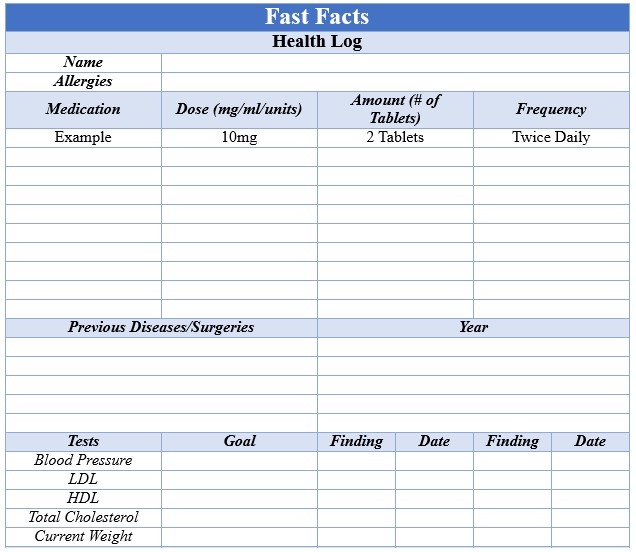What you should know before you go!
You’ve just left the doctor’s office and have more questions now than when you went in. You didn’t understand half of what she said and aren’t sure what you are supposed to do before your next appointment. Unfortunately, this is not an uncommon experience. In order to get the most out of your visit, what do you need to know before you go to the doctor?
.jpg) The Interview
The Interview
When you start the visit with your doctor, it is important to go over your health history. This includes everything significant you’ve had in the past, such as surgeries and diseases. It is also essential to discuss any life changing events that could potentially be causing you stress. Your doctor needs to know if you are having any symptoms that you normally don’t have. Be sure to bring an updated medication list that includes any vitamins or supplements you are taking. Also, bring any current X-ray or lab work results. By providing this information, you will help give the doctor a clearer picture of not only your current health status, but past history as well. Both can have impact on your current and future health. Please see Fast Facts for an example of the information you should bring with you to discuss with the doctor.
Instruction
Once you have provided the doctor with all the information they need, they will give you instructions on what to do next. This is where a significant amount of breakdown in communication can occur because often doctors will explain something in medical terminology and patients are too afraid to ask for clarification or a question. The most important thing that you can do is tell the doctor when you don’t understand something because the treatment they are trying to provide wil l not be effective if you don’t know what you’re supposed to be doing. Ask for written material, such as instructions or educational brochures, that you can take home with you and read after the appointment. Ask your doctor if you could record the instructions in order to play them back later. Take notes and/or bring a family member or friend with you to do this. Write down any questions you have before you go to the appointment in order to have them on-hand. Make sure to put the most important questions first to ensure that they get answered. If your doctor doesn’t have time to answer all the questions in the allotted appointment, schedule a second visit or ask to speak to Nurse Practioner, Physician Assistant, or Registered Nurse.
l not be effective if you don’t know what you’re supposed to be doing. Ask for written material, such as instructions or educational brochures, that you can take home with you and read after the appointment. Ask your doctor if you could record the instructions in order to play them back later. Take notes and/or bring a family member or friend with you to do this. Write down any questions you have before you go to the appointment in order to have them on-hand. Make sure to put the most important questions first to ensure that they get answered. If your doctor doesn’t have time to answer all the questions in the allotted appointment, schedule a second visit or ask to speak to Nurse Practioner, Physician Assistant, or Registered Nurse.
Follow Up
After your appointment, it is important to follow up with your doctor. Call your doctor if you had tests completed and haven’t gotten any results three to five days later. If you can’t remember the instructions you were given during your appointment, call the doctor’s office and leave a message for the nurse to call you back with them. If you went to the doctor because you were sick and have been following the instructions, but aren’t getting better after two to three days, contact the doctor’s office explaining what symptoms you’re having and asking what else you can do to feel better (this doesn’t necessarily mean getting an antibiotic). If you were prescribed a new medication, keep track of any new symptoms you may experience to discuss with your doctor at your follow up visit. If you have a reaction to the medication, call the doctor’s office to determine next steps (if you’re having an allergic reaction, such has itching with hives and/or shortness of breath, go to the nearest Emergency Room). With a little preparation and taking the time to clarify any questions, you will be able to make informed decisions about your health. This is a right that everyone has and by following the steps outlined above, you will be able to make the most of your doctor visits.